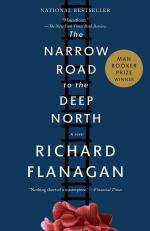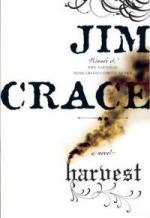Reading Roundup: July-September 2020
I've been a lot busier lately, hence the lack of roundups. Wanting for time is just another reason I'll still be sticking with short stories.
So a very brief entry this time.
I've been a lot busier lately, hence the lack of roundups. Wanting for time is just another reason I'll still be sticking with short stories.
So a very brief entry this time.
Reading is great!
I've been thinking about all the hours of work that go into producing a good book, not to mention the time spent reading and rereading and thinking about it later. All for not very much money at all. As pastimes go, the value proposition is hard to beat.
My other great interest at the moment is cycling, which can often be rather more expensive. Although again, and as I'll write about sometime soon, it's undeniably an investment that offers a fantastic payoff, certainly compared with (say) spending an equivalent amount of time drinking beer, streaming TV shows or playing video games.
On to the Roundup: reading-wise, June was a month of two halves. Let's get the bad bit out of the way first.
My reading continues apace, again, like last month, almost entirely fiction. The exception to this is Bertrand Russell's A History of Western Philosophy, which I have just started rereading to ease me back into philosophy and adjacent subjects (Alan Ryan's On Politics is also high up on my list). I think having one fiction and one non-fiction book going simultaneously will work well, but right now I'm just having too much fun with the former.
When it comes to fiction, I consider myself to be in the exploratory phase; I've been scouring annual summaries, reviews and book awards shortlists for likely candidates, reading online previews of the promising ones, and ordering hard copies of those I like. If the subject matter doesn't interest me or the preview doesn't capture my attention, I forget it and move on to the next one. There's a virtually unlimited supply, so ruthless culling is essential.
In our current predicament, although I'm kept busy with a combination of working from home and taking care of my young son, my evenings have been opened up a lot, primarily due to the shutting down of much of the outside world, and specifically the postponement of just about the entire sporting calendar.
In recent years this had become the single largest time sink in my life. I was never addicted to smartphone use, and video games, social networks and compulsive news reading (on a desktop computer) were eradicated long ago, but aimless browsing of the web has tended to creep back in, invariably gravitating to sports streaming.
Thirty years ago, before I'd even heard of the internet, I used to read a lot. Generally, what I was attracted to were books that I'd learn something from (non fiction, which comprised the great bulk of my reading), although fiction-wise it was mostly throwaway action-adventure bestsellers.
So the last few weeks, with everything shut down, I was at a loss. With my usual fallback out of commission, I'd found myself looking through my bookshelves most days, without ever actually getting around to picking out something and sitting down to read. But then I happened to read a review of Hilary Mantel's recently-released trilogy-completing Cromwell novel, and put in a pre-order.
When it arrived a couple of weeks later, I'd spent the free time of most of the intervening period still doing nothing much. It took another few days of this before I actually started to read. One week and 900 pages later and I'd already ordered half a dozen more novels, and gone back through my existing book collection with renewed interest. I was a reader again.

The Narrow Road to the Deep North, by Richard Flanagan
Although its subject matter makes it heavy going, there's no doubt that every fan of literature should read this. Flanagan's novel won the 2014 Booker Prize, and most of it is truly excellent.
The core of the book is set in the Siamese jungle in 1943, and describes in remorseless, horrendous detail the forced labour of Australian prisoners of war during the construction of the Death Railway. Flanagan does about as good a job as anyone could of conveying the relentless misery and suffering inflicted on a few of the hundreds of thousands of victims (mostly Australian, British and Dutch prisoners, along with many more local civilians).

Book Review: Harvest, by Jim Crace
Beginning 400 years ago and continuing until the advent of the First World War, a series of Enclosure Acts moved under private control British land that was previously available for common use. The laws were so named because they involved enclosing open fields with fences, giving legal ownership to a single deed holder.
An inevitable consequence, and catalyst, of industrialization, enclosure allowed for more efficient land usage at the price of massive upheaval. Land formerly cultivated by peasants in an ad-hoc manner could now be farmed systematically, increasing returns. For instance, arable land that was collectively farmed by subsistence peasants using traditional methods and crop rotation was often transformed into pasture land for sheep farming, which was much less labour-intensive and also eliminated the need to leave fields fallow.
Once gaining exclusive control, the new owners were not shy about increasing the rent they charged to those working the land. In many cases, this led to a mass exodus of peasants from the countryside to the industrializing towns and cities; a process that created the working class. Entire villages often disappeared in this way. Riots, rebellions and revolts protesting these changes were commonplace, as were grain shortages and pervasive unemployment.
This is the background to Jim Crace's finely-written, absorbing and memorable novel. Set in a remote village that has minimal contact with the outside world, where very little has changed over many decades. The village is not identified, and no specific time period for the story is indicated, although presumably it is sometime in the seventeenth century. The village has effectively been left to run itself, and for a long time this works well enough, until finally it doesn't.